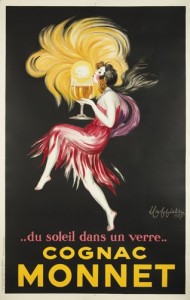Today, March 16, is the 35th anniversary of Jean Monnets death. This is why I change the schedule for my publications yet again. There is a free downlad link of a subchapter of my book on Volltext. The chapter as a whole addresses europeanist ideologies. The subsection is devoted to a critical appraisal of this founding father, a man, who is central to the whole EU project. The title means in free translation “Europe’s Granddad was Uncle Sam”.
There are three focal points:
- “Méthode Monnet”, which is todays prevalent political method in european politics. It is a mixture of lobbyism, deception and longterm tactics, designed to create inherent necessities and practical constraints for future politicians, thereby centralizing powers and shifting political loyalties towards centres in Brussels, Strasbourg and Frankfurt. Monnet was a mere practitioner and this is why the method named after him was put together only by his followers. But then, there was no Socratic method either, no method conceived by Socrates himself. Be that as it may, there can be no question, that what is now called “Méthode Monnet” is a true image of his political praxis.
- Monnet’s role in the formation of the “High Authority of the European Coal and Steel Community”, the predecessor of the European Commission. Monnet became its first president in 1952 and is in a sense precursor of José Manuel Durão Barroso. Monnet acted as the man of confidence for the US State Department, which has been after the formation of a unified european state since the 1940ies (at this time understandably so). The newly created authority was financed by the Americans to the tune of 100 million dollars, which was a lot of money in 1953. The coal and Steel authority was the first supranational european body and Monnet was received with full protocolary honours, when he paid a “state visit” to the US.
- My third aspect is the personality and carrer of this remarkable man who came from Cognac, a town in the southwest of France. Monnet was a strange mixture of a business man and a politician, a business man without a business in the real economy and a statesman, who never was elected. He spent most of his lifetime in the service of allied politicians, organizing things like war supplies or managing a newly created French planning commission. Only after the First World War he worked 10 or 15 years as an investment banker for Wall Street firms, seemingly engaging in activities which today would be called dubious or even corrupt.

Sonne im Glas……
Even so, Monnet still is an iconic figure for the europeanist’s movement. To give an example: He lent his name to a lifelong learning programme of the commission extending to 250.000 students and 1.650 professors every year. The scope of this programme are European integration studies in higher education institutions within and outside the European Union.
Full documentation is given in Volltext, because only part of my sources are online.
Comments are closed, but trackbacks and pingbacks are open.